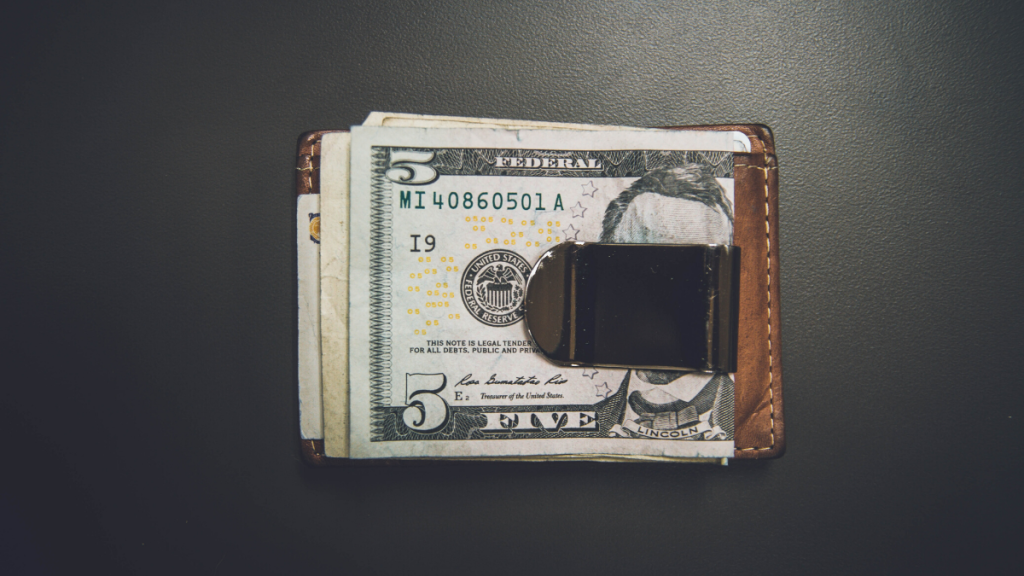Your net worth is essentially a measure of your financial wealth.
It’s calculated by adding all of your assets and subtracting your debts (also called your liabilities).
Assets – Liabilities = Net worth
In my post about the racial wealth gap, I touched on the fact that wealth is different from income. Someone may make an average annual salary but have a high net worth thanks to inherited assets or a particularly high savings rate. Conversely, someone might make a six-figure salary but have a negative net worth due to student loans, lifestyle inflation, or other family responsibilities.
Understanding the difference between income and wealth is important and knowing your net worth can give you a good sense of your financial picture, help you make financial decisions, and set concrete financial goals for yourself.
Having a high net worth (or wealth) increases your financial resiliency and provides you more freedom when making big life decisions. Having a negative net worth can mean increased financial stress and less financial resiliency.
What counts as an asset?
Assets include any cash, checking and savings balances, investment accounts, bonds, your home, and your car.
Some folks will also include furniture, art, jewelry, collections, as well as other personal belongings. Including all of that can get a little tedious, and unless you plan on liquidating the items into cash at some point, I don’t personally see the value in including their worth in your net worth calculation — but hey, I don’t own a Picasso. But feel free to do what makes sense to you!
Personally, when calculating my own net worth, I simply include my cash accounts, investment accounts, and home.
I don’t include my car because it’s a depreciating asset (meaning it loses value over time), I don’t plan on selling it soon, and if I did, I would probably be buying another car after.
You can use sites like Zillow to get a ball park figure of the market value of your home and sites like Kelly Blue Book to get the market value of your car.
Once you’ve listed all of your assets and their worth you’ll total them all up and this will be the first number you need for the net worth equation.
What counts as a liability?
Liabilities are debts. This includes your mortgage, car loan, student loans, credit card balances, personal loans, etc.
Just as you listed all your assets and their worth, you’ll want to list out all of your debts and what you owe. Once you’ve totaled up this amount you’re all set to calculate your personal net worth.
Sample net worth calculations:
Here are some made up examples to show what I just described.
Person 1:
| Assets | $$$ |
| Checking Account | $2,500 |
| Savings Account | $8,000 |
| 401k | $22,200 |
| Roth IRA | $5,400 |
| Home Market Value | $200,000 |
| Total Assets: | $238,100 |
| Liabilities | $$$ |
| Mortgage | ($125,000) |
| Credit Card Balance | ($1,800) |
| Student Loans | ($6,200) |
| Total Liabilities | ($133,000) |
| Net Worth ($238,100 – $133,000) | $105,100 |
Person #2
| Assets | $$$ |
| Checking Account | $750 |
| Savings Account | $2,100 |
| Roth IRA | $1,550 |
| Car | $11,000 |
| Total Assets | $15,400 |
| Liabilities | $$$ |
| Car Loan | $4,800 |
| Student Loans | $12,000 |
| Total Liabilities | $16,800 |
| Net Worth ($15,400 – $16,800) | -$1,400 |
Person #3
| Assets | $$$ |
| Cash | $350 |
| Checking Account | $2,300 |
| Savings Account | $4,200 |
| 401k | $4,700 |
| Car | $8,500 |
| Total Assets | $20,050 |
| Liabilities | $$$ |
| Car Loan | $1,700 |
| Credit Card Balance | $450 |
| Total Liabilities | $2,150 |
| Net Worth ($20,050 – $2,150) | $17,900 |
Now it’s time to get out a pen and paper, open up those accounts, brush off your arithmetic skills, and calculate your own net worth.
I know for some that might seem scary, but I challenge you to push past that initial feeling. The scarier it feels, the more important it probably is to do.
The first time I calculated my net worth, I didn’t love what I saw. I was in the red and knew I wanted to be on a better track for my future self and future family.
It might feel overwhelming the first time you calculate your net worth if it’s in the negative — or even if it’s just not as high as you would want it to be after [insert number of years] working and earning an income. But knowing where you are is an important and powerful first step that can give you a sense of control and direction on how to improve your situation.
I calculate my net worth on a monthly basis to make sure that it’s moving in the right direction and to track my progress. Doing this monthly update helps me feel in control and seeing the positive movement each month keeps me motivated. Each time it goes up I feel less stressed and a little freer.
I’ve come a long way since the first time I calculated my net worth, and I know that with a few changes you can to, but it starts with knowing where you’re starting.


Leave a comment